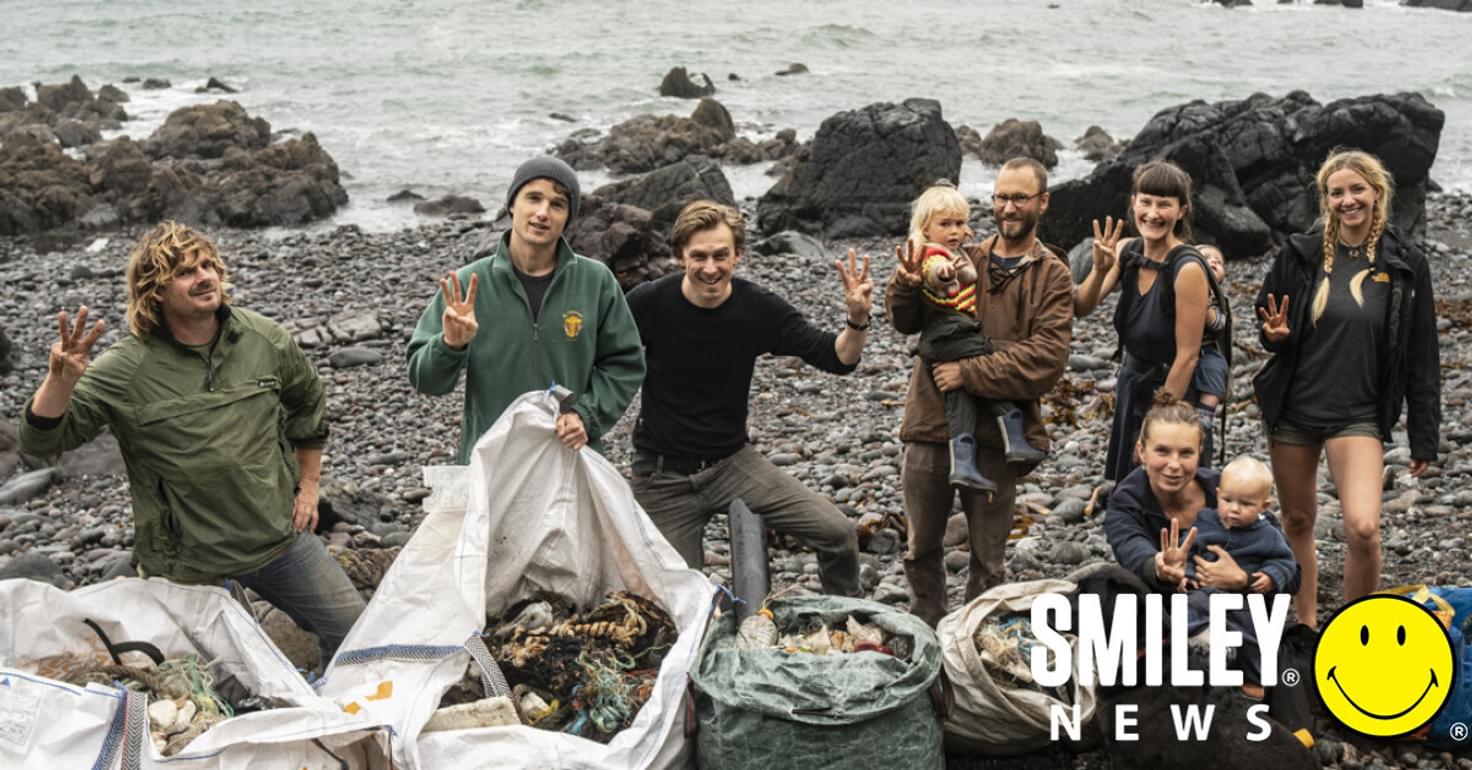
Words by Smiley Team
There's millions of waste plastic littering our oceans and beaches, killing sea life and getting into our food chain and our water supplies – that’s not news.
So one family, who call themselves plastic hunting “pirates”, have a mission to paddle to remote, inaccessible places to clean up the coast by collecting plastic from the shores and sorting, recording, reusing, and recycling it.
Steve Green, 47, from Cornwall, is the main pirate of Clean Ocean Sailing, the group of volunteers are determined to get rid of the increasing amount of plastic in our seas. His partner, Monika Hertlova, is also on board, along with Simon, two, Ula, six, Benny, 13, and Charlie, 16.
[Read More: Fashion platform asks shoppers to buy less]
Clean Ocean Sailing started back in 2018, when the couple built their website to inspire other sailors to join them fishing for marine litter. They also wanted to spread awareness of the problem, to try to influence people - business and governments to make changes to their polluting ways.
Steve Green and Monika Hertlová reside on Annette, their 112-year-old schooner. “We have owned our beloved boat The Annette for just over 13 years now," says Steve. "She was built in 1908, a gaff rigged schooner, 66 foot, 55 tonnes. She was made to sail in the harshest conditions and is, to this day, extremely seaworthy.
“We’ve been working very hard to restore our mother ship for five years. She has just about held together for some clean up missions within that time, but she’s been out the water all summer this year for major works - relaunch very soon! Then she’ll be good to go anywhere.”
Steve says they're aiming to remove as much of the deadly plastic pollution from our coast and ocean as possible – in a super low negative impact way, by sailing, rowing, and paddling for it.
[Read More: Inside the UK's first disabled animal rehab centre]
One of the biggest problem they deal with is comercial fishing gear. "Massive tangled nets, weighing hundreds of kilograms, stuck under boulders, trapped in caves and floating free in the ocean," says Steve. "It's a massive danger to marine wildlife."
They collect it all, then sail it back to their HQ where they sort, count, and weigh all their finds. "Then we sail the recyclable materials up to the materials reclamation facility in Exeter where it is processed and handed on to organisations like Oddyssea innovations who make it into sea kyacks," says Steve.
Steve says they are also finding a lot of single-use plastics: plastic bottles, food wrapping, plastic bags, straws, and fast food containers. "That's the area we hope everyone could get involved in and use less plastic in everyday life," he says.
“We’re always looking for volunteers to join us on clean up missions near and far,” he says. “People can join our ocean clean up community on patreon.”
You can also help Clean Ocean Sailing by donating on their JustGiving page.